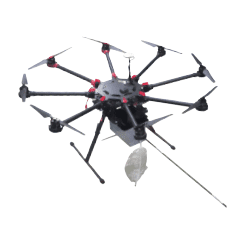Exclusive! Scentroid Patented Technology – View our patent for US11585799B2
What Is Your Facility's Viral Transmission Score (VTS)?
Be proactive, not reactive! Start rebuilding visitor confidence now. By enhancing your customer’s shopping experience through the use of air quality monitors. You can assure your visitors are in a safe and monitored indoor space! By utilizing our Viral Transmission Score (VTS) monitoring system, you can ensure your public space is being safely monitored and protected.
AQmini and AQSafe are capable of pin-pointing COVID risks such as stagnant air, increased traffic and even a malfunctioning / inadequate HVAC system. By pairing a monitoring device with your HVAC system, you’ll be boasting some of the cleanest air in the city, with actual, collected data to back up your claims!
Viral Transmission Score (VTS)
Scentroid's Indoor Air Quality Monitors take all of the parameters above. Our devices provide you with a unique viral transmission score for your facility. VTS allows you to easily determine whether a space may be safe or hazardous simplified by a 1-10 numerical scale.
1 - 3
Low
Transmission Score
4 - 6
Unhealthy
Transmission Score
7 - 8
Hazardous
Transmission Score
9 - 10
Very Hazardous
Transmission Score

Water Droplets
According to the WHO, respiratory infections including COVID-19 are primarily transferred through respiratory droplets and contact.

Dust (Particulates)
COVID-19 can spread through the air on dust, fibers, and other microscopic particles, according to researchers at the University of California-Davis.

Carbon Dioxide (CO2)
CO2 is co-exhaled with aerosols containing COVID-19 by those infected, and can be used as a proxy to determine a total concentration of potential SARS-CoV-2 indoors.

Barometric Pressure
Safeguard against air leaks and ensure your HVAC system is optimized and is providing the adequate positive pressure for proper air isolation.
Indoor Public Retail, Shopping Centers, Public Spaces
By modernizing your customer’s shopping experience through the use of air quality monitors, you can assure your visitors are in a safe and monitored indoor space.
Through careful monitoring of CO2, the AQmini is capable of pin-pointing COVID risks. Such as stagnant air, increased traffic, or even a malfunctioning or inadequate HVAC system. Plus, by pairing a monitoring device with your HVAC system, you can boast some of the cleanest air in the city – with collected data to back up your claims!
Elementary, Secondary, and Higher Education Facilities
Students, staff, and parents continue to be concerned about preventative COVID measures and whether schools are meeting ventilation and air quality standards.
Winter and cold weather is forcing more students and staff to remain indoors, despite an overall lack of government information regarding mandated inspection of ventilation systems in schools. Poor ventilation raises the risks of super-spreader events. The risk of catching COVID-19 indoors is 18.7 times higher than in the open air, according to the US Center for Disease Control and Prevention.
Hospitals, Medical Facilities, Dentistry, Pharmaceuticals
Through monitoring pressure, you can ensure your HVAC system is providing adequate positive pressure for air isolation.
AQmini can play a key role in ensuring critical spaces are safe from contamination. The AQmini also measures particulate matter, including water droplets and pathogens down to 0.3 μm. UV disinfectants used widely in hospital isolation rooms can cause free ozone to be released indoors, capable of causing severe health issues. Using disinfectants and sanitizers in general will release harmful volatile organic compounds into the air. This will cause short-term and long-term health effects on patients, staff and visitors.
HVAC Systems and HVAC Optimization Solutions
Monitoring your HVAC system through the use of our AQmini will keep building occupants protected by providing real time high accuracy air quality monitoring based on many factors, including temperature and humidity.
Through careful monitoring of CO2, the AQmini is capable of pin-pointing COVID risks such as stagnant air, increased traffic, or even a malfunctioning or inadequate HVAC system. Understanding your air quality will help to reduce energy costs. Sending you monitored information in relation to a indoor area’s ventilation system, enabling the optimization of air change rates.


